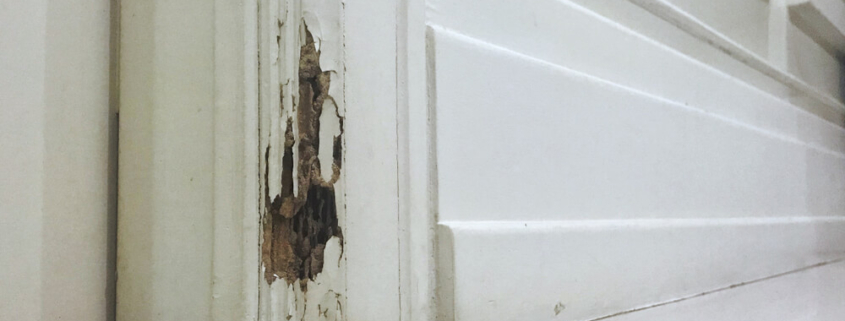Can You Break a Lease Because of Termites in Mississippi?
Dealing with pests can be a significant concern for tenants, especially when it comes to the structural damage and health risks associated with termites. In Mississippi, where the humid climate often attracts these destructive insects, tenants may wonder about their rights concerning lease agreements. One common question is whether you can legally break a lease because of termites.
Breaking your lease is something you should approach with caution, as unpaid rent and an eviction on your record can make it very difficult to find another rental. Let us help; call Reeves & Mestayer at 228-374-5151.
Lease Agreements and Pest Issues
Lease agreements are important documents that set out the responsibilities of both tenants and landlords. When you sign a lease, you’re agreeing to take care of the property and report any problems, including pest issues like termites. Some leases specifically mention pest control and describe what should be done if there’s an infestation. It’s important to read your lease carefully to see what it says about dealing with pests. If your lease states that the landlord is responsible for pest control, this information can be vital when dealing with a termite problem.
Legal Obligations of Landlords Concerning Termites
In Mississippi, landlords must ensure that rental properties are safe and habitable, which includes being free from serious termite infestations. Termites can severely damage the structural integrity of a property, making it unsafe for tenants. If a tenant reports a termite problem, the landlord is usually required to take swift action to resolve the issue. This often requires the landlord to hire a professional pest control service to clear out the infestation, repair any damage caused by the termites, and take steps to prevent future infestations.
If a landlord neglects to address a severe termite problem, it could be considered a violation of their legal duties. This neglect might give tenants the right to seek legal remedies, such as requesting repairs or, in more extreme cases, considering breaking the lease.
Your Rights as a Tenant When Termites Are Present
As a tenant, you have the right to live in a property that is both safe and habitable. When you discover a termite infestation, it’s essential to notify your landlord immediately. Provide them with the chance to address and resolve the issue promptly. If your landlord doesn’t act within a reasonable timeframe, they might be violating the warranty of habitability, which means the property is no longer fit to live in. This breach could allow you to seek various remedies, including requesting necessary repairs or even breaking the lease if the infestation is severe enough to make the property unlivable. Documenting all communications and actions taken is crucial in protecting your rights.
How to Document and Report Termite Problems
If you suspect a termite problem, documenting and reporting it effectively is essential. Begin by taking clear photos of any visible signs of termite damage, such as mud tubes, hollow wood, or discarded wings. These images serve as crucial evidence. Next, keep a detailed record of your interactions with your landlord. This includes saving emails, text messages, and any written correspondence about the issue. Always provide written notice of the infestation to your landlord, clearly describing the problem and requesting prompt action. This formal notice should include the date and your contact information.
It can also be helpful to keep notes of any conversations you have with your landlord, including the date and key points discussed. This documentation will be valuable if you need to take further steps, like pursuing legal action or breaking your lease. Being thorough and organized in your documentation not only strengthens your case but also shows your landlord that you are serious about resolving the problem.
What to Do If You Want to Break a Lease Due to Termites
If the termite issue is severe and your landlord hasn’t taken action, you might consider breaking your lease. Start by reviewing your lease agreement and familiarizing yourself with local laws to confirm you have valid reasons. From there, you should speak to an attorney with experience in termite litigation. Landlords have a tendency to push back when a tenant tries to vacate their lease early, and you don’t want to be dragged through the court system because you exercised your rights. A termite litigation attorney can help you protect your credit and your right to live in a safe, pest-free place.
Reach Out to Reeves & Mestayer Today
Facing a termite problem and unsure of what to do next? Let’s talk. Call Reeves & Mestayer at 228-374-5151 or get in touch online to request your free case evaluation.







